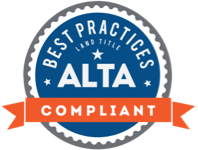Deals Can be Delayed or Canceled When Property Is In Dispute
Some adverse possession claims can be frivolous, and sometimes finding a solution requires digging through records that may be centuries old. It’s important to understand what adverse possession is and what actions you can take to mitigate certain situations even before they occur.
Cornerstone Insight
Adverse possession is a legal concept that dates back 1,000 years: simply put, a person in possession of land owned by someone else may acquire valid title to it if certain requirements are met and the adverse possessor controls the property for a sufficient period. (In New York, this period is generally 10 years).
For example, construction of a planned hotel in Manhattan’s diamond district has been stalled for three years because a neighbor has claimed possession of an 18-inch strip of land on the planned hotel’s site; specifically, the adjacent property’s antennas, air conditioning units, and a ventilation unit overhang this strip.
To resolve one issue for a client, we had to go back to the 1600s, fast-forward to Google Earth photos, and make site visits to determine who owned an alley that didn’t appear on any deeds and was holding up a multi-million-dollar development.
In general, adverse possession cases involve these elements:
- Continuous possession for 10 years in New York (20 years for government land)
- Hostility to the true owner’s possession or infringement upon the true owner’s rights (The owner did not consent.)
- Demonstrated, “actual possession,” or use of the property (e.g., constructed a fence or shed on the property, etc.)
- Manifestation of ownership: the non-owner controls the area in question adversely to the exclusion of the true owner.
- Control can be as simple as maintaining the property, cutting the hedges, or otherwise employing sweat equity.
- “Open and notorious” use of the property, where the use of the property is known or should be known by others.
- Exclusivity, no one else has access to the land.
These cases come up often and can be difficult and expensive to resolve. One key protection is to know the exact boundaries of any piece of property and to remain vigilant about who else may be using that property.
If you have any questions about adverse possession or potential title issues, or if you would like to discuss an upcoming or prospective transaction, please contact us.




